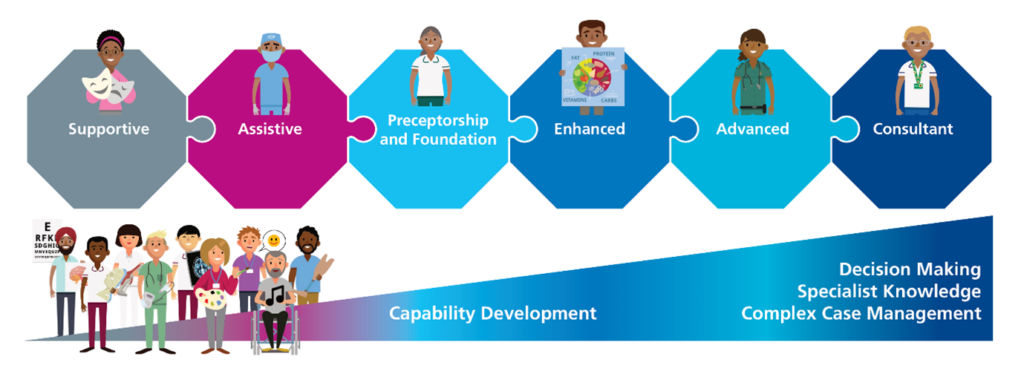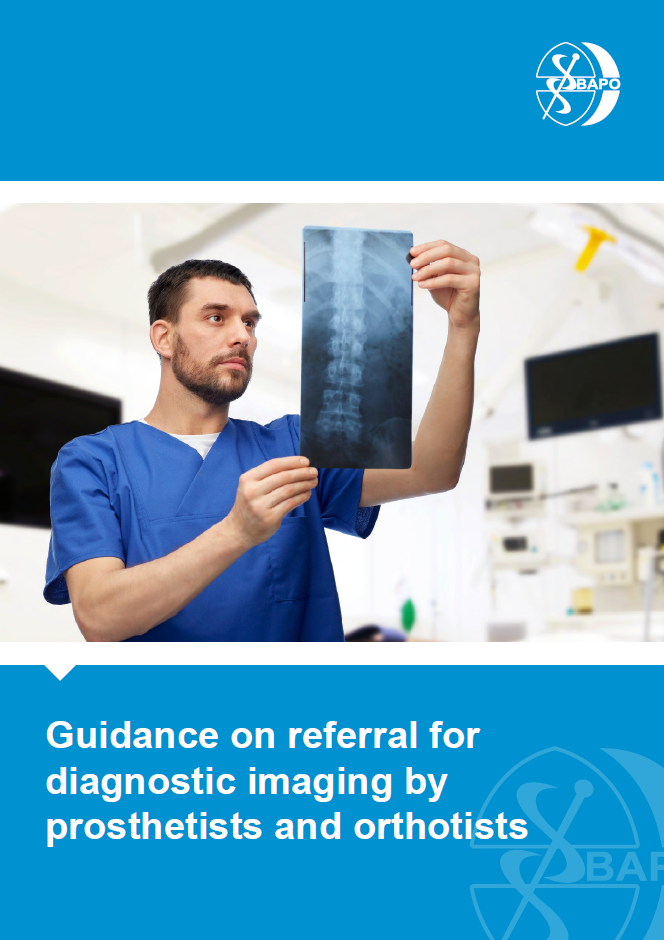
Resources

NHS England has made a significant investment in the formation of a multi-professional Faculty in each of its seven regions, to drive change at a local level. The teams offer information and advice on all aspects of Advancing Practice, including how to access funding and the level of support available for supervisor costs:
Guidance and resources – Advanced Practice (hee.nhs.uk) – North East and Yorkshire
Midlands Guidance and Resources – Advanced Practice (hee.nhs.uk) – Midlands
Regional Faculty for Advancing Practice – North West – Advanced Practice (hee.nhs.uk) – North West
Guidance and resources – Advanced Practice (hee.nhs.uk) – East Midlands
London Faculty Guidance, Tools and Resources – Advanced Practice (hee.nhs.uk) – London
South West Resources – Advanced Practice (hee.nhs.uk) – South West
Tools and resources – Advanced Practice (hee.nhs.uk) – South East
Regional Faculties for Advancing Practice – Advanced Practice (hee.nhs.uk)
Frequently Asked Questions (FAQs)
General
Enhanced and advanced practice are different levels of professional practice. At each level of practice, a health and care professional’s ability to handle complexity and risk increases.
At an enhanced level of practice, practitioners will have additional knowledge and skills in a field of expertise. They will manage discrete aspects of a patient’s care, often particular to specific conditions and groups of patients.
At an advanced level of practice practitioners will have developed their knowledge, skills and expertise in their area of practice even further. They will be able to manage the whole episode of a patient’s care from the time they first present, through to the end of the episode.
Advanced practice is a level of professional practice rather than a job title. In practice, a variety of titles, often interchangeable, are used for practitioners who practise at an advanced level. They include ‘advanced practitioner’ and ‘advanced clinical practitioner’.
‘Advanced clinical practitioner’ is sometimes used for advanced practice roles in specific clinical areas or for advanced practice roles which cut across care pathways and professional boundaries and utilise the knowledge and skills of practitioners from a range of different professional backgrounds.
Prosthetists and orthotists
Education and training in advanced practice is undertaken by health and care professionals with substantial professional experience. They will have already progressed into roles at the enhanced level of practice, most likely at Agenda for Change Bands 6 or 7, before undertaking training.
Advanced practice education and training has developed over time and there will be existing advanced practitioners who have followed different educational pathways in the past.
In England, becoming an advanced practitioner now involves being appointed to a trainee advanced practitioner post and completing a Master’s programme in advanced practice. The Master’s programme normally takes three years and involves both academic preparation and clinical preparation in the workplace, allowing the trainee to demonstrate all the required capabilities for advanced practice. Once the programme is completed, the trainee is then employed by their employer as a fully qualified advanced practitioner.
No.
Some prosthetists and orthotists will have completed a pre-registration Master’s degree in prosthetics and orthotics which allowed them to become registered with the HCPC. Their programme will have developed their academic skills at Master’s level and allowed them to demonstrate the threshold standards of proficiency for entry to the HCPC Register as a prosthetist and orthotist.
Any prosthetist and orthotist who has completed pre-registration education and training at degree or Master’s level would need to build their capability and post-registration experience before being appointed to a trainee advanced practitioner position and undertaking an accredited Master’s programme in advanced practice which addresses the required advanced level capabilities across all four pillars of practice.
Yes.
Some prosthetists and orthotists may have undertaken post-registration Master’s degrees in prosthetics and orthotics or in other profession-focused areas to support their personal and professional development.
If they wanted to become an advanced practitioner, they would still need to complete an accredited Master’s programme in advanced practice that has been mapped to the required capabilities, as outlined above. They might ask the education provider delivering the Master’s programme in advanced practice whether they can receive any credit for their previous Master’s level study. However, that would be a decision made by the education provider at their discretion, based on their policies for accreditation of prior (experiential) learning or ‘AP(E)L’
Accredited Master’s programmes in advanced practice are delivered by universities. They are either conventional Master’s programmes or Master’s degree apprenticeship programmes.
Both types of programmes are very similar in content and structure and both will have been mapped against the required advanced-level capabilities across all four pillars of practice. The main difference is in how the programmes are funded.
No.
The specific regulated professions that are able to access mechanisms to sell, supply, administer and prescribe medicines is set out in legislation. Prosthetists and orthotists are not currently able to train to become prescribers.
The ability to prescribe is not a requirement for, or an integral part of, advanced
practice education and training and is not a requirement to be able to practise at an
advanced level.
However, we know that employers may sometimes decide that being able to prescribe is an important requirement for specific advanced practice roles and to maximise the usefulness of advanced practitioners to some care pathways. This can limit opportunities for prosthetists and orthotists
Prosthetists and orthotists and their employers are encouraged to make best use of the existing mechanisms available to the profession, including Patient Specific Directions (PSDs) and Patient Group Directions (PGDs).
You can find more information about prescribing and advanced practice here.
NHS England’s Centre for Advancing Practice runs the ePortfolio (supported) route. This is a time-limited route to recognising existing, experienced advanced practitioners in England who are already in role, but who have completed different qualifications in the past or who completed their training before the Multi-professional framework for advanced practice was first published in 2017.
Eligible applicants are supported to produce a portfolio of evidence to demonstrate their advanced-level capabilities. If successful, they will be issued with a ‘digital badge’, an electronic certification which recognises their achievement at advanced-level.
This is a recognition route only, so is not a way of training to be an advanced practitioner.
Education and training in advanced practice is undertaken by health and care professionals with substantial professional experience. They will have already progressed into roles at the enhanced level of practice, most likely at Agenda for Change Bands 6 or 7, before undertaking training.
Advanced practice education and training has developed over time and there will be existing advanced practitioners who have followed different educational pathways in the past.
In England, becoming an advanced practitioner now involves being appointed to a trainee advanced practitioner post and completing a Master’s programme in advanced practice. The Master’s programme normally takes three years and involves both academic preparation and clinical preparation in the workplace, allowing the trainee to demonstrate all the required capabilities for advanced practice. Once the programme is completed, the trainee is then employed by their employer as a fully qualified advanced practitioner.
No.
Some prosthetists and orthotists will have completed a pre-registration Master’s degree in prosthetics and orthotics which allowed them to become registered with the HCPC. Their programme will have developed their academic skills at Master’s level and allowed them to demonstrate the threshold standards of proficiency for entry to the HCPC Register as a prosthetist and orthotist.
Any prosthetist and orthotist who has completed pre-registration education and training at degree or Master’s level would need to build their capability and post-registration experience before being appointed to a trainee advanced practitioner position and undertaking an accredited Master’s programme in advanced practice which addresses the required advanced level capabilities across all four pillars of practice.
Yes.
Some prosthetists and orthotists may have undertaken post-registration Master’s degrees in prosthetics and orthotics or in other profession-focused areas to support their personal and professional development.
If they wanted to become an advanced practitioner, they would still need to complete an accredited Master’s programme in advanced practice that has been mapped to the required capabilities, as outlined above. They might ask the education provider delivering the Master’s programme in advanced practice whether they can receive any credit for their previous Master’s level study. However, that would be a decision made by the education provider at their discretion, based on their policies for accreditation of prior (experiential) learning or ‘AP(E)L’
Accredited Master’s programmes in advanced practice are delivered by universities. They are either conventional Master’s programmes or Master’s degree apprenticeship programmes.
Both types of programmes are very similar in content and structure and both will have been mapped against the required advanced-level capabilities across all four pillars of practice. The main difference is in how the programmes are funded.
No.
The specific regulated professions that are able to access mechanisms to sell, supply, administer and prescribe medicines is set out in legislation. Prosthetists and orthotists are not currently able to train to become prescribers.
The ability to prescribe is not a requirement for, or an integral part of, advanced
practice education and training and is not a requirement to be able to practise at an
advanced level.
However, we know that employers may sometimes decide that being able to prescribe is an important requirement for specific advanced practice roles and to maximise the usefulness of advanced practitioners to some care pathways. This can limit opportunities for prosthetists and orthotists
Prosthetists and orthotists and their employers are encouraged to make best use of the existing mechanisms available to the profession, including Patient Specific Directions (PSDs) and Patient Group Directions (PGDs).
You can find more information about prescribing and advanced practice here.
NHS England’s Centre for Advancing Practice runs the ePortfolio (supported) route. This is a time-limited route to recognising existing, experienced advanced practitioners in England who are already in role, but who have completed different qualifications in the past or who completed their training before the Multi-professional framework for advanced practice was first published in 2017.
Eligible applicants are supported to produce a portfolio of evidence to demonstrate their advanced-level capabilities. If successful, they will be issued with a ‘digital badge’, an electronic certification which recognises their achievement at advanced-level.
This is a recognition route only, so is not a way of training to be an advanced practitioner.